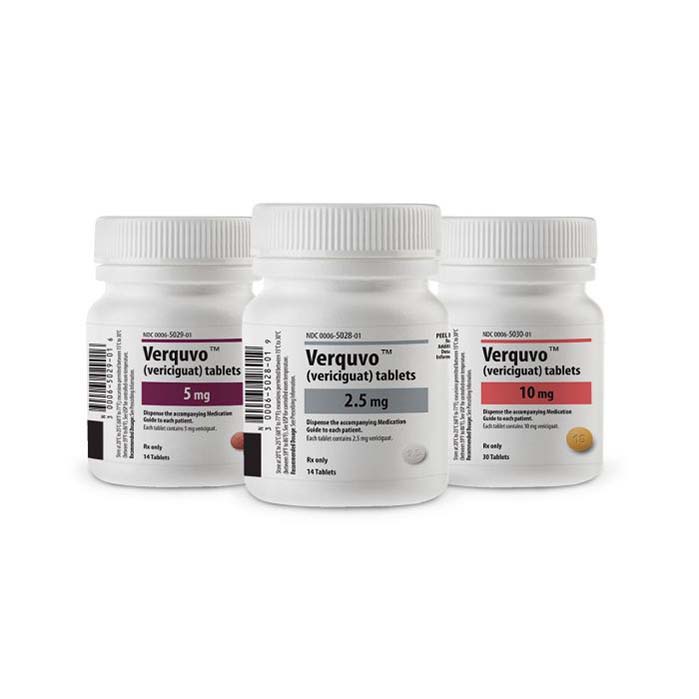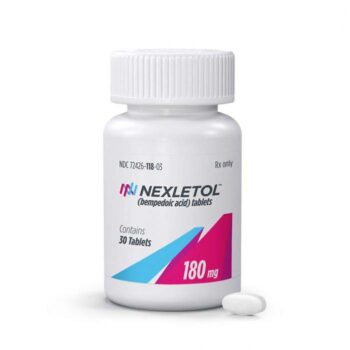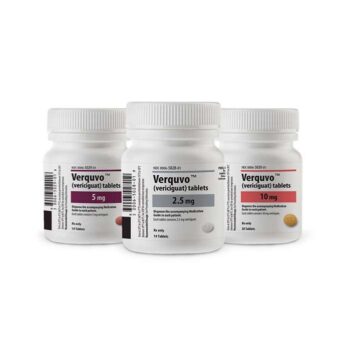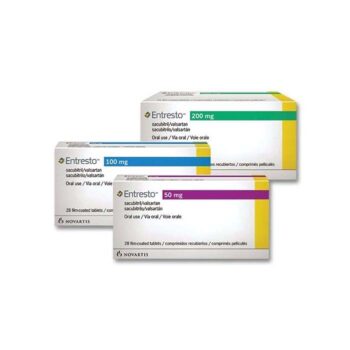Verquvo (vericiguat) is a prescription medication used to treat chronic heart failure (CHF) with reduced ejection fraction (HFrEF). CHF is a condition in which the heart muscle is weakened and cannot pump blood as efficiently as it should. HFrEF is a type of CHF in which the left ventricle of the heart is not pumping blood as well as it should.
Description
Verquvo is a soluble guanylate cyclase (sGC) stimulator. sGC is an enzyme that produces cyclic guanosine monophosphate (cGMP), a molecule that helps to relax blood vessels and improve heart function. Verquvo works by directly stimulating sGC, which increases the production of cGMP. This can lead to improved heart function, reduced blood pressure, and decreased symptoms of CHF.
Uses
Verquvo is used to treat chronic heart failure (CHF) with reduced ejection fraction (HFrEF). HFrEF is a type of CHF in which the left ventricle of the heart is not pumping blood as well as it should. Verquvo can be used in combination with other CHF medications, such as beta-blockers, ACE inhibitors, and angiotensin receptor blockers (ARBs).
How to use
Verquvo is taken orally once daily with food. The recommended starting dose is 2.5 mg. The dose can be doubled every 2 weeks until the target maintenance dose of 10 mg is reached. The dose may need to be adjusted based on the patient’s tolerability.
Dosage
The recommended starting dose of Verquvo is 2.5 mg orally once daily with food. The dose can be doubled every 2 weeks until the target maintenance dose of 10 mg is reached. The dose may need to be adjusted based on the patient’s tolerability.
Mechanism of action
Verquvo works by directly stimulating soluble guanylate cyclase (sGC), an enzyme that produces cyclic guanosine monophosphate (cGMP). cGMP is a molecule that helps to relax blood vessels and improve heart function. By increasing the production of cGMP, Verquvo can improve heart function, reduce blood pressure, and decrease symptoms of CHF.
Storage conditions
Verquvo should be stored at room temperature (68°F to 77°F) away from light and moisture.
Precautions
Verquvo can cause hypotension (low blood pressure). Patients should be monitored for signs and symptoms of hypotension, such as dizziness, lightheadedness, and fainting. If hypotension occurs, the dose of Verquvo may need to be reduced or discontinued.
Verquvo can also cause anemia. Patients should be monitored for signs and symptoms of anemia, such as fatigue, shortness of breath, and pale skin. If anemia occurs, the dose of Verquvo may need to be reduced or discontinued.
Interactions
Verquvo can interact with other medications, such as nitrates, alpha-blockers, and certain antihypertensives. Patients should tell their doctor about all of the medications they are taking before starting Verquvo.
Contraindications
Verquvo is contraindicated in patients with the following conditions:
- Hypotension (low blood pressure) with systolic blood pressure less than 90 mmHg
- Severe aortic stenosis
- Severe pulmonary hypertension
- Pregnancy
- Lactation
Side effects
The most common side effects of Verquvo are:
- Hypotension (low blood pressure)
- Anemia
- Headache
- Dizziness
- Nausea
- Diarrhea
- Edema (swelling)
Overdose
There is no known specific antidote for Verquvo overdose. Treatment should be supportive and include monitoring of vital signs, fluid replacement, and vasopressor therapy if needed.
If you have any questions or concerns about Verquvo, please talk to your doctor.










Reviews
There are no reviews yet.